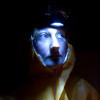By Brian Biswas
It is a physical law that nothing can travel through space faster than the speed of light. However, space itself can and often does. This presents the celestial traveler with a conundrum. For if the space he inhabits is expanding faster than the speed of light, then the proportion of space he occupies — compared to the entire cosmos — lessens. In other words, he will shrink.
Now Max was not certain, but he believed this was what may have happened to him and his beloved.
Max met Alice in 1958 at a sidewalk cafe in New York City. It was a tranquil Sunday in early October, around noon. The air was crisp and cool. Cumulus clouds dotted the sky. Alice was eating alone. She held a steaming beverage in her left hand and on a small white plate there was a chocolate-covered donut.
Max noticed that she was not wearing a wedding ring, and he asked if he could join her. She smiled.
They made their introductions. Alice looked to be in her early twenties. She had long, straight black hair, lovely pale-green eyes. She was wearing a yellow blouse, cashmere cardigan with bold red buttons, a bright-red wrap-a-round skirt. She told Max she taught astrophysics at Columbia University. He was impressed.
"That's quite an accomplishment for one so young," he said. "If I may ask, how old are you?"
She blushed. "Twenty-six."
Max told her he was nineteen, an undergraduate at Columbia who'd been majoring in linguistics, but had dropped out when it became apparent he was making little progress.
"Never give up," she said. "You never know what's around the corner."
"It wasn't the field for me."
"When I was younger I wanted to be a ballerina, but my feet couldn't stand the strain. Astrophysics is the same thing only on a larger scale. Why, now I can pirouette amongst the stars!"
He laughed.
"Tell me what you think of that book," she continued, pointing at the hardback he held in his right hand. On the Origins of the Universe.
"I'm not sure," he said. "It's fascinating, to say the least. But there's much I find confusing."
"Such as?"
"The big questions. How did the universe arise? How will it end? After it ends, what will be where it was? Just thinking about it makes me dizzy. If there's one thing that really bothers me it's when the author talks about the expansion of space. What is it expanding into?"
Alice laughed. "Nothing, silly. Space is all there is."
"That's another thing I don't understand."
"Think of it this way. Space is everywhere. As it expands, it's not anywhere it wasn't already." She paused, noticing his discomfort. "And it's not really expanding, anyway. It's stretching."
Max frowned. "What's the difference?"
"Expanding implies movement from here to there, which, as I said, isn't what happens. Stretching is an increase in distance between two points. After a suitable period, the distance between A and B isn't C, it's two times C."
They talked for over an hour. Max learned she was unmarried, had taught at Columbia for a year, had a brother named Zeke and a sister, Cindy. She'd graduated with a PhD in astrophysics from Stanford only the year before. Her specialty, she said, was the physics of black holes.
"I have one, as a matter of fact," she dead-panned. "In my apartment on West 145th Street."
***
As they climbed the stairs to her fourth-floor apartment, Alice talked about her family. Her parents lived in Ely, Minnesota, where she was born and raised. They were the owners of Slatkin's Canoe Outfitters, a rental agency that had served northern Minnesota for thirty years. Her eyes glazed over as she spoke of midnight paddles across Great Bear Lake, the stars twinkling against the jet-black background of space. It was there she fell in love with the heavens, learned how to navigate via the stars, and decided to devote her life to astronomy.
Max was mesmerised by her iridescent hair, hour-glass figure, hips that gently swayed as she mounted the stairs, and his heart was thumping wildly when she slowly opened the door to apartment 403.
She flicked on the light in the foyer and he gazed out onto an expansive living room. The walls were painted aquatic-blue. He saw a black leather couch along one wall, a floral still life atop. A mahogany end table. A dark-brown ottoman. But it was the enormous aquarium nestled up against one of the side walls that captured his attention. It was filled with tropical fish, exotic plants, and aquatic sculptures.
"My pride and joy," Alice said when she noticed him gazing at the tank. He counted a half-dozen fish, brilliant orange, with translucent black fins, bright red eyes, and light-blue lines that crisscrossed their bellies. He knew something about fish, yet he'd never encountered this species.
"What kind of fish are these?" he asked.
"Speculated Wild African Goldfish," she said, a species he had never heard of. Then she asked if he'd like something to drink.
"Iced tea, if you have any."
The walls of the living room were painted dark blue and were quoined with red sandstone blocks. The floors were carpeted, a thick, ultra-soft material. A bay window behind the couch overlooked a park across the street.
Max turned his attention back to the fish tank. The African goldfish had disappeared, probably into a large red-and-white-ceramic castle that occupied one portion of the tank, and he found himself staring into the languid, gold eyes of a Mexican axolotl. The creature was ghostly-looking: white with red gills, two short, fat front legs with four digits each and two thin, long rear legs with five. Its pupiless, unlidded eyes stared at him uncomprehendingly.
"Admiring my salamander?" Alice said as she strode back into the room, drinks in hand. "I acquired it about a month ago. It's charming, wouldn't you say?"
That wasn't the word Max would have used to describe the creature, but he nodded in agreement.
"It will grow to be about three feet long, but I'll donate it to the New York Aquarium before then. They have a salamander exhibit that's second to none."
"I've been there," he said. "But it was long ago."
"Then we must go sometime!"
Max smiled. Alice had a way of talking that he'd always admired in women: straight and to the point but from an unexpected direction.
"Alice, I was wondering . . ."
"Yes?"
"It's like the expansion of space. The enormity of it all. I mean, I know we just met, but ah, eh …" He hemmed and hawed. He felt embarrassed. Here he was, a former linguistics major, and he couldn't string proper sentences together.
She smiled. "You're thinking about the enormity of the cosmos, aren't you? Well, the universe is vast. Do you know scientists believe we can only detect five percent of the content of our universe? The other ninety-five percent has disappeared over the time horizon, the point at which objects are so faraway the light emitted by them will never reach us. In other words, not only is most everything unknown, most everything is unknowable. The only difference between us and him" — she pointed at the axolotl — "is that we're swimming in a different aquarium."
She paused, then said, "Shall I show you what you came here for?"
Max gulped. "Sure."
"It's in the bedroom."
It seemed to take them an eternity to make their way down the red-carpeted hallway that led to Alice's sleeping chamber. She kept talking all the while, but Max couldn't remember a word she said, other than it had something to do with the structure of space.
When they reached the room, she ushered him inside with a wave of her hand. "After you."
The room was pitch-black. Instead of turning on the lights, she lit a half-dozen candles on a dresser that rested against the far wall. They flared up like little supernovas, casting wandering shadows on the walls. Max sighed when he saw her queen-sized bed in one corner, the cotton sheets warm and inviting.
But that was not all that he saw.
The ceiling was covered with glow-in-the-dark stars. They'd been arranged to form a replica of the winter night sky. Aldebaran was a shining red jewel in the constellation Taurus. Orion the Hunter contained the bright stars Rigel and Betelgeuse and the three smaller stars that formed the magnificent belt. Directly overhead was the Andromeda galaxy. The closest galaxy to our own, it was barely visible to the naked eye; here it was brighter than anything else. Alice had taken great pains to ensure the correctness of her overhead mural and this deviation seemed odd.
Before he could ask Alice about it, Max was conscious of gurgling sounds coming from the back of the room. Looking to his left, he saw what looked like a filtration device, perhaps three feet wide by two feet tall. It was wedged in one corner next to a casement window whose shades were drawn.
When Alice saw him gazing at the filter, she said, "A hobby of mine. I put this one together with parts from a local surplus store. It works by suctioning water into a canister through an entry pipe and then pumping it out through a return pipe."
What Alice didn't tell Max was what the filter was doing in her bedroom.
He noticed that the pipes disappeared into the bedroom closet and was about to ask what that was about when he heard her sigh. She had removed her cardigan and sandals. Her green eyes sparkled in the flickering candlelight and the sibylline smile that played on her lips could only have meant one thing.
He was wondering if the time had come to kiss her when she went over to the closet and pulled open the door.
"In here."
As Max peered into the closet, he saw an inky black void.
"It's in the corner," she whispered.
And that was when he saw it: underneath the bottommost shelf, a pinpoint of light. It was only a point, no wider than the end of a pencil, but it was so bright, so intense, that it seemed much larger. "Yes," he said. "I see it now. Amazing! But I'm confused. You said you were going to show me a black hole. This is something else."
"No," she replied. "This is what I mentioned."
"I don't understand."
"Look closely," she said, "and tell me what you see."
Trembling, he entered the closet and got down on his hands and knees to look, but the angle wasn't right.
"It's easiest if you lie on your back and look up," she said.
Thus positioned, Max saw the radiant jewel's infinite expanse. He saw everything that ever was, he saw everything that ever would be. He saw his birth in a hospital in upstate New York. He witnessed his recovery from the childhood illness that nearly killed him. He saw his baptism. He saw his high school graduation. The look of pride on his parents' faces when he was admitted to Columbia on full scholarship. He witnessed the car accident which claimed his brother's life when he was in his freshman year. The agonising aftermath. The long and lonely evenings drinking in bars around Manhattan wondering what any of it meant. He saw himself meeting Alice in a restaurant on Forty-Third Street. And he watched in wonder when the circle became complete as she took him to her apartment and showed him the black hole.
"Why doesn't it consume what's around it?" Max asked. "You, me, this room, everything."
"They don't work that way," she replied. "At least not the little ones."
He told Alice he felt like he was in a tale by Jorge Louis Borges. "The Aleph."
She stretched herself up like a rooster. "The Argentinian's aleph was a figment of his imagination. Mine exists."
He asked her what was on the other side of the black hole.
"Another world," she said, "much like ours."
"How do you know?"
"Perhaps I've been there?" She laughed. Her green eyes sparkled and Max found himself gazing longingly at her pearly throat and pouty lips. Lips that knew how to get what they wanted. "I don't know about you, but I'm starved," she said, changing the subject, and the coils of his desire snapped. "Would you like to stay for dinner?"
Without waiting for a reply, she ushered him into the dining room. She apologised for leftovers but assured him Indian food tasted better after the spices had time to meld.
As they ate a delicious meal of tandoori chicken, vegetable biryani, and garlic naan, their conversation continued.
"It says in here," Max began, holding up his copy of On the Origins of the Universe, "that the cosmos is actually the inside of a monstrous black hole, a black hole which will expand until the universe becomes so stretched that it fades from existence."
Alice laughed. "I know what the book says, but it's wrong."
Max raised his eyebrows. "I don't understand the details of the author's argument. The mathematics involved. But he seems to make his case."
"It's hogwash."
"He sets forth a reductio ad absurdum that —"
"— that is itself absurd."
"So what are they? Black holes. You said you study them. The author of my book calls them portals to the past. Are they that or something else?"
"It's been mathematically proven that you can't revisit the past," she said, "but you can change the rate at which you go into the future."
"You mean black holes are portals to other worlds?"
"I mean no such thing," she said. Too quickly, he thought; there was something behind her words. She rose from the table and began clearing the dishes. "They're permanent fixtures of our universe, nothing more. Scientific curiosities, leading nowhere."
"That reminds me of a question I had earlier," Max said. "The black hole in your closet is a point of light. I didn't think they emitted light."
Alice smiled. "You're correct. The gravitational attraction of a black hole is so strong not even light can escape, that is, once light rays have crossed the event horizon, the boundary marking the black hole's limits, they're gone forever. What you may not realise is that to you, an observer, the light approaching a black hole never crosses inside. You observe light get closer and closer, witness an ever-increasing halo of light that seems to surround the hole, a blinding white light that in reality has long-since vanished."
"The black hole becomes a white one?"
"To the observer, yes. It's a consequence of the Second Law of Thermodynamics: entropy — the amount of disorder in a closed system — must remain constant. Information is a measure of the disorder of a system. A black hole removes information from the universe. If the light a black hole captured could no longer be detected within the universe, the information content of the universe would decrease, violating the law. Therefore, the light never vanishes from the observer's perspective. Quod erat demonstrandum."
"Doesn't that imply that the black hole is effectively a second universe, or possibly a portal to such a place?"
Alice smiled again. "It's late and I'm tired," she said, rubbing her forehead. "We can talk more later." She drew Max to her and placed a playful kiss upon his lips.
"Wait," he said, pulling away. "Since the farthest reaches of the cosmos are expanding faster than the speed of light, at some point the light from there — which can travel no faster than the speed of light — will no longer be able to reach us. In other words, information will disappear from the universe, reducing its disorder in violation of the second law. And that means — does it not? — that we're living inside a black hole."
In response, Alice kissed him again, passionately this time. And, this time, he did not resist.
When Max awoke the next morning, Alice was nowhere to be seen. He dressed and went downstairs, then into the kitchen. No Alice.
He looked at the clock on the wall: 9:15. He remembered Alice telling him she had an eight o'clock class that morning. The topic: the outer planets of the solar system. She'd beamed as she told him she'd assembled half-a-dozen film clips to illustrate the topic. They were shot in lavish detail — she laughed when she said she'd filmed on location — and were sure to be a hit with her students.
Just then Max spied a note on the counter. Alice had written that she wouldn't return until six, that he was to make himself at home, and not to worry about dinner because she'd be bringing home Chinese. It certainly seemed to be an invitation to stay.
Which he did.
![]()
Note: Part two of "The Expansion of Space" will appear in the next issue of AntipodeanSF.
About the Author
Brian Biswas
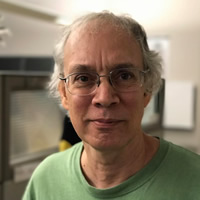 Brian Biswas lives in Chapel Hill, North Carolina, USA.
Brian Biswas lives in Chapel Hill, North Carolina, USA.
He is the author of the short story collection, "A Betrayal and Other Stories", published by Rogue Star Press, and the novel "The Astronomer", published by Whisk(e)y Tit Books.
A second collection, "Blister and Other Stories", was published by Obie Books in February, 2024.
You can find out more about Brian at his website <brianbiswas.com>.

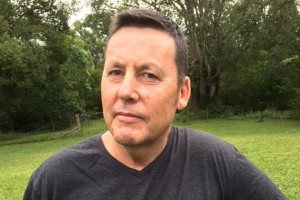
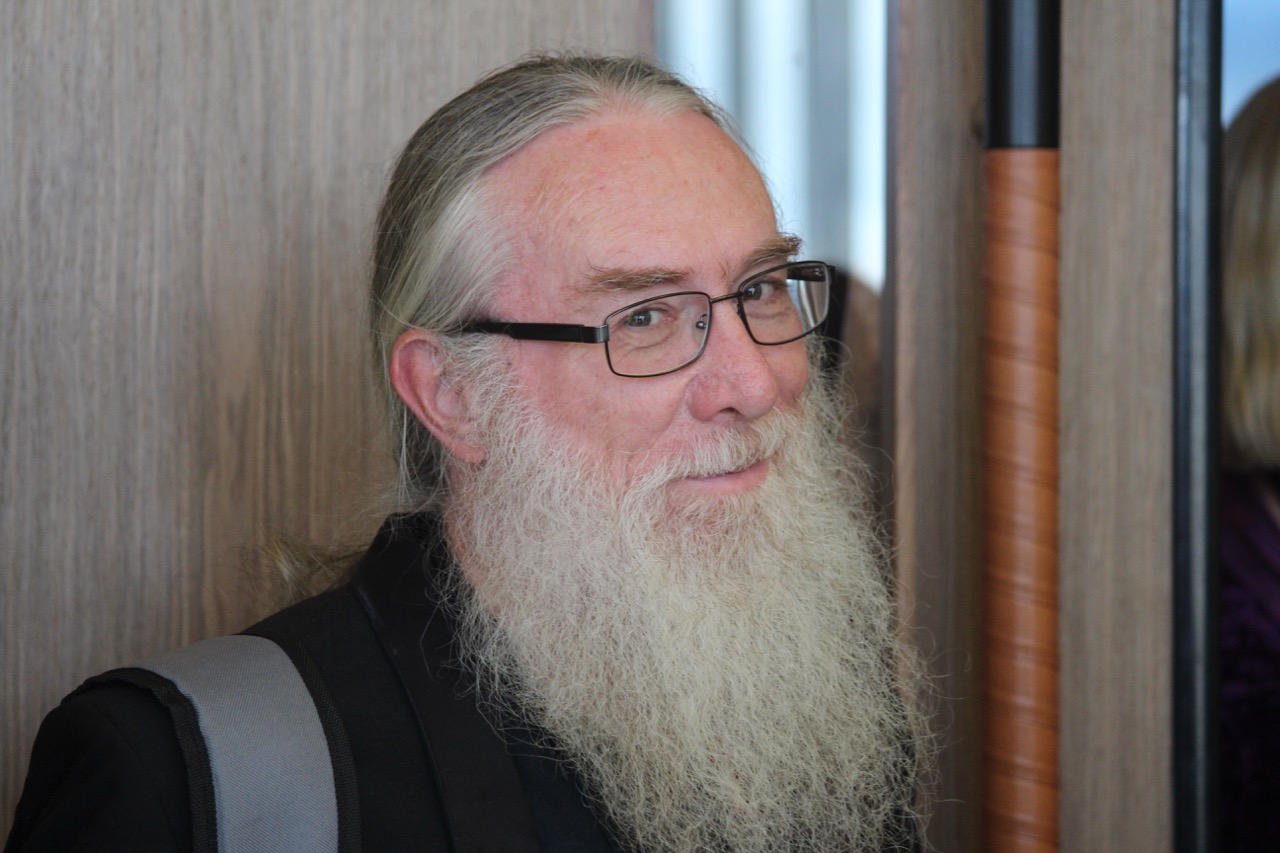









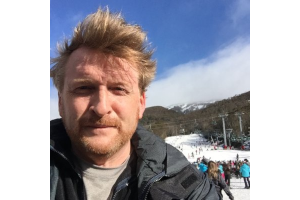


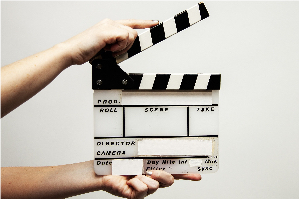



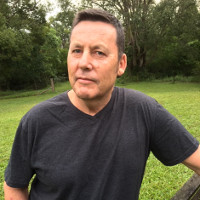 Tim Borella is an Australian author, mainly of short speculative fiction published in anthologies, online and in podcasts.
Tim Borella is an Australian author, mainly of short speculative fiction published in anthologies, online and in podcasts.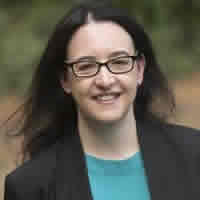
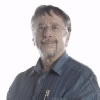 Ed lives with his wife plus a magical assortment of native animals in tropical North Queensland.
Ed lives with his wife plus a magical assortment of native animals in tropical North Queensland.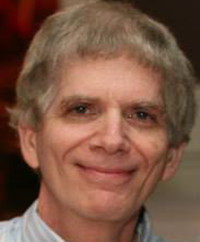 Barry Yedvobnick is a recently retired Biology Professor. He performed molecular biology and genetic research, and taught, at Emory University in Atlanta for 34 years. He is new to fiction writing, and enjoys taking real science a step or two beyond its known boundaries in his
Barry Yedvobnick is a recently retired Biology Professor. He performed molecular biology and genetic research, and taught, at Emory University in Atlanta for 34 years. He is new to fiction writing, and enjoys taking real science a step or two beyond its known boundaries in his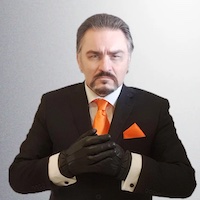 Chuck McKenzie was born in 1970, and still spends much of his time there.
Chuck McKenzie was born in 1970, and still spends much of his time there.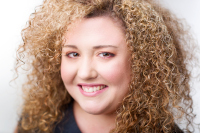 Sarah Jane Justice is an Adelaide-based fiction writer, poet, musician and spoken word artist.
Sarah Jane Justice is an Adelaide-based fiction writer, poet, musician and spoken word artist.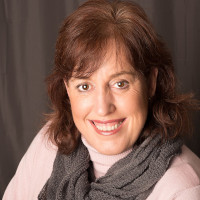 Geraldine Borella writes fiction for children, young adults and adults. Her work has been published by Deadset Press, IFWG Publishing, Wombat Books/Rhiza Edge, AHWA/Midnight Echo, Antipodean SF, Shacklebound Books, Black Ink Fiction, Paramour Ink Fiction, House of Loki and Raven & Drake
Geraldine Borella writes fiction for children, young adults and adults. Her work has been published by Deadset Press, IFWG Publishing, Wombat Books/Rhiza Edge, AHWA/Midnight Echo, Antipodean SF, Shacklebound Books, Black Ink Fiction, Paramour Ink Fiction, House of Loki and Raven & Drake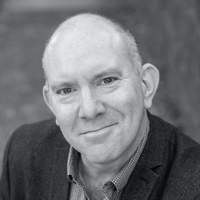 Alistair Lloyd is a Melbourne based writer and narrator who has been consuming good quality science fiction and fantasy most of his life.
Alistair Lloyd is a Melbourne based writer and narrator who has been consuming good quality science fiction and fantasy most of his life.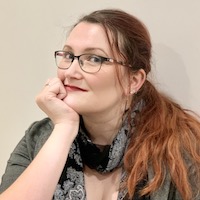 Emma Louise Gill (she/her) is a British-Australian spec fic writer and consumer of vast amounts of coffee. Brought up on a diet of English lit, she rebelled and now spends her time writing explosive space opera and other fantastical things in
Emma Louise Gill (she/her) is a British-Australian spec fic writer and consumer of vast amounts of coffee. Brought up on a diet of English lit, she rebelled and now spends her time writing explosive space opera and other fantastical things in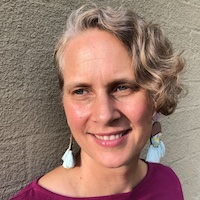 Merri Andrew writes poetry and short fiction, some of which has appeared in Cordite, Be:longing, Baby Teeth and Islet, among other places.
Merri Andrew writes poetry and short fiction, some of which has appeared in Cordite, Be:longing, Baby Teeth and Islet, among other places.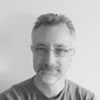 Mark is an astrophysicist and space scientist who worked on the Cassini/Huygens mission to Saturn. Following this he worked in computer consultancy, engineering, and high energy research (with a stint at the JET Fusion Torus).
Mark is an astrophysicist and space scientist who worked on the Cassini/Huygens mission to Saturn. Following this he worked in computer consultancy, engineering, and high energy research (with a stint at the JET Fusion Torus).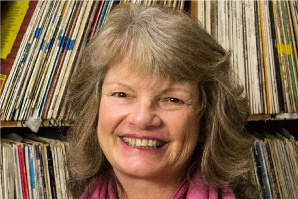 My time at Nambucca Valley Community Radio began back in 2016 after moving into the area from Sydney.
My time at Nambucca Valley Community Radio began back in 2016 after moving into the area from Sydney.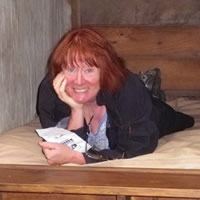 Margaret lives the good life on a small piece of rural New South Wales Australia, with an amazing man, a couple of pets, and several rambunctious wombats.
Margaret lives the good life on a small piece of rural New South Wales Australia, with an amazing man, a couple of pets, and several rambunctious wombats.